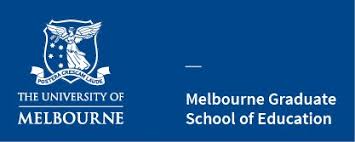A research project looking at the ways high school English curriculum can best highlight diverse perspectives on issues of consent
The Consent in Literature project investigated the potential and possibilities of including a focus on consent education in school English, as part of engagement with literature and literary representation in the secondary years of schooling.
The focus on consent education has been driven by increasing community awareness of the high prevalence of sexual harassment and sexual assault, with girls and young women, along with lesbian, gay, bisexual, transgender, intersex and queer (LGBTIQ+) people, experiencing far higher rates of violence than the rest of the community.
The Consent in Literature project is a joint research initiative between the Literary Education Lab (Melbourne Graduate School of Education) and Stella.
The key questions examined in this project included:
- In what ways are issues of consent present in a selection of literary texts routinely taught in Australian secondary English?
- In what ways do contemporary, award-winning Australian texts relevant to subject English address issues of consent?
- How do English teachers conceptualise the potential contribution of subject English in the context of consent education?
- How do contemporary Australian writers conceptualise the reading and teaching of literature in the context of debates about consent education?
To explore these questions, the project team undertook a close analysis of:
- 20 texts widely used in secondary English
- 20 contemporary texts that engage with broad issues of consent
- two focus groups conducted with secondary teachers of English
- invited responses from 11 Australian writers regarding the potential contribution of literature to consent education.
Key Findings
The research identified that literature currently taught in secondary school English commonly includes accounts of interpersonal violence, including sexual harassment and sexual assault.
It demonstrated that subject English, and the teaching of literature more broadly, provides an important site through which to contribute to consent education, not only because the subject matter is commonly present in the texts studied, but also because the rich text of a novel can provide access to the complexity and depth of experiences of those who are affected. However, in terms of pedagogical practice, this research found that teachers of English commonly avoid discussing the more sensitive issues pertaining to sexual relations when conducting a novel study. Teachers noted that they need more support if they are to discuss issues pertaining to consent and would benefit from frameworks, and further training and resources, to guide their approach: this has implications for pre-service English teacher preparation and inservice professional learning.
Watch the symposium
The report of this research was released in June 2022 with a symposium at The Wheeler Centre featuring contemporary authors, teachers, and researchers:
Researchers
Larissa McLean Davies (University of Melbourne)
Larissa McLean Davies is Professor of Teacher Education at the Melbourne Graduate School of Education, University of Melbourne. Larissa McLean Davies leads large-scale Teacher Education research which mobilises partnerships with Government agencies, Education Departments, and not-for-profit organisations. She is the co-convenor of the Literary Education Lab (with Dr Sarah E. Truman), where she leads research which draws together the digital and environmental humanities, literary studies and education around core issues related to teacher professional learning in the context of justice and sustainability imperatives. Her co-authored book Literary Knowing and the Making of English Teachers will be published by Routledge in 2022.
Helen Cahill (University of Melbourne)
Emeritus Professor Helen Cahill leads a body of research addressing child and youth wellbeing.
She has developed a number of disaster recovery, violence-reduction, social and emotional learning, gender rights, sexuality, and drug education programs for use in schools and community settings in Australia, as well as a range of countries across the Asia-Pacific region and East and Southern Africa regions. She has authored over 100 publications, including over 40 wellbeing prevention education programs for use in schools and community settings. She is lead author of Resilience, Rights and Respectful Relationships, an open access, evidence-informed program for Australian students from 5-18, and the UNESCO Connect with Respect program for prevention of school related gender-based violence.
Sarah E. Truman (University of Melbourne)
Sarah E. Truman is an interdisciplinary scholar whose interests intersect with English literary education, cultural studies, and the arts. From 2022-2025, Dr. Truman is an ARC DECRA Fellow conducting a project focused on speculative and science fiction as methods for thinking critically about the world and proposing different futures on themes of technology, climate and social justice. Dr. Truman is co-director of the Literary Education Lab; co-director of WalkingLab, and one half of Oblique Curiosites. Dr Truman’s most recent book is Feminist Speculations and the Practice of Research-Creation (Routlege, 2022).
Troy Potter (LaTrobe University)
Troy Potter is a lecturer in the School of Education at La Trobe University. His research interests include the use of genre in adolescent literature to construct, engage with, and respond to contemporary concerns, particularly those relating to gender, sexuality and disability. He is the author of Books for Boys: Manipulating Genre in Contemporary Australian Young Adult Fiction (WVT Trier, 2018).
Michéle Hinton Herrington University of Melbourne)
Michéle Hinton Herrington had a PhD in linguistics and contributes to several large research projects in education. Michéle is passionate about education research and is particularly interested in how language and language systems function in and across the school disciplines and how theory translates into teaching practices. Michéle is co-author of Multimodal Literacy in School Science: Transdisciplinary perspectives on Theory, Research and and Pedagogy (Routledge, 2022).
Natalie Calleja (University of Melbourne)
Natalie Calleja is a Research Fellow at the Melbourne Graduate School of Education, University of Melbourne with a background in teaching. They are currently involved in a research project that aims to examine the provision of the Resilience, Rights and Respectful Relationships intervention program in secondary schools.







